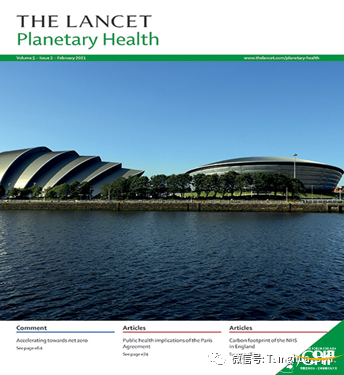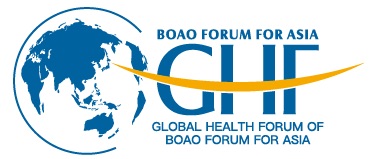On February 10, Dr. Margaret Chan, the Dean of Vanke School of Public Health of Tsinghua University and the Emeritus Director-General of the World Health Organization, published an article in The Lancet – Planetary Health, calling for accelerating towards net zero emission. She stresses that this measure is the most important global health intervention, since climate change affects the interests and well-being of all populations. On the occasion of the 5th anniversary of the Paris Agreement Under the United Nations Framework Convention on Climate Change (Paris Agreement), Dr. Chan's appeal further enhances the ambition of global climate governance.

Cover of “The Lancet – Planetary Health” Feb.2021
Source: “The Lancet – Planetary Health” Website
This article analyzes the health effects of climate change, and emphasizes that "no population is left untouched", even for people in high-income countries. However, according to Dr. Chan, low-income and middle-income countries, which account least for the problem and are least prepared for confronting the issues, are suffering the worst health impacts of climate change. Additionally, the COVID-19 pandemic, resulting from a zoonotic spillover event and exacerbated by existing environmental, health, and social inequities and extreme weather events, has at times overwhelmed even the strongest health systems. Furthermore, climate change and other environmental harms such as air pollution and deforestation increase the risk of future pandemics and leave the world vulnerable.

Dr. Chan, therefore, calls for immediate global action to address climate change, so as to improve population health and benefit current and future generations. The article urges all countries to put forward more ambitious Nationally Determined Contributions (NDCs) at the next UN Climate Change Conference COP26 in Glasgow in November 2021 to limit the global warming to 1.5°C this century. These commitments, the Nationally Determined Contributions (NDCs), must be three times more ambitious to limit the global temperature rise to 2°C, and five times stronger to keep that limit to 1·5°C. Nothing short of net zero emissions by 2050 will keep us at 1·5°C this century. Without stronger commitments, we are on track for warming of greater than 3°C, a change that is untenable for the health of many populations.

According to the article, achieving net zero emissions is the most important global health intervention now and for decades to come. Such interventions will reduce the burden of non-communicable diseases in the short term and climate-related risk factors in the long term, with the number of lives saved this century potentially in the hundreds of millions. With climate change action consistent with the Paris Agreement and a Health in All Policies approach to climate policies, the public health implications are overwhelmingly positive. At the same time, it is essential that health and the Paris Agreement are central to all economic recovery measures; otherwise, we put public health and the economy at risk now and in the longer term by locking ourselves in to further climate change.
The article further emphasizes that in the context of the global pandemics, countries which keep health as a focus of economic stimulus measures will achieve the best possible health outcomes results for current and future generations and help achieve the world's aim of limiting warming to 1·5°C.
Margaret Chan has been committed to advancing the development of public health and effectively promoting global response to climate change. During her tenure as Director-General of the World Health Organization, malaria-related deaths decreased by 62% between 2000 and 2015; Child mortality decreased by 53% between 1990 and 2015; The mortality caused by neglected tropical diseases has been significantly reduced, and the treatment has been widely improved; Importantly, during this period, countries adopted the “The Sustainable Development Agenda 2030”, in which 17 SDGs and 169 specific goals were set to ensure the vigorous development of human society. She also witnessed the adoption of the Paris Agreement which aims to limit global temperature rise within a safe range.
Dr. Margaret Chan’s article “Accelerating towards net zero emissions: the most important global health intervention”, was published in The Lancet Planetary Health in February 2021. Margaret Chan is the first and corresponding author and the article is included in The Lancet Countdown 2030.



 Viewpoints
Viewpoints
 Partner application
Partner application Download
Download Hot News
Hot News









